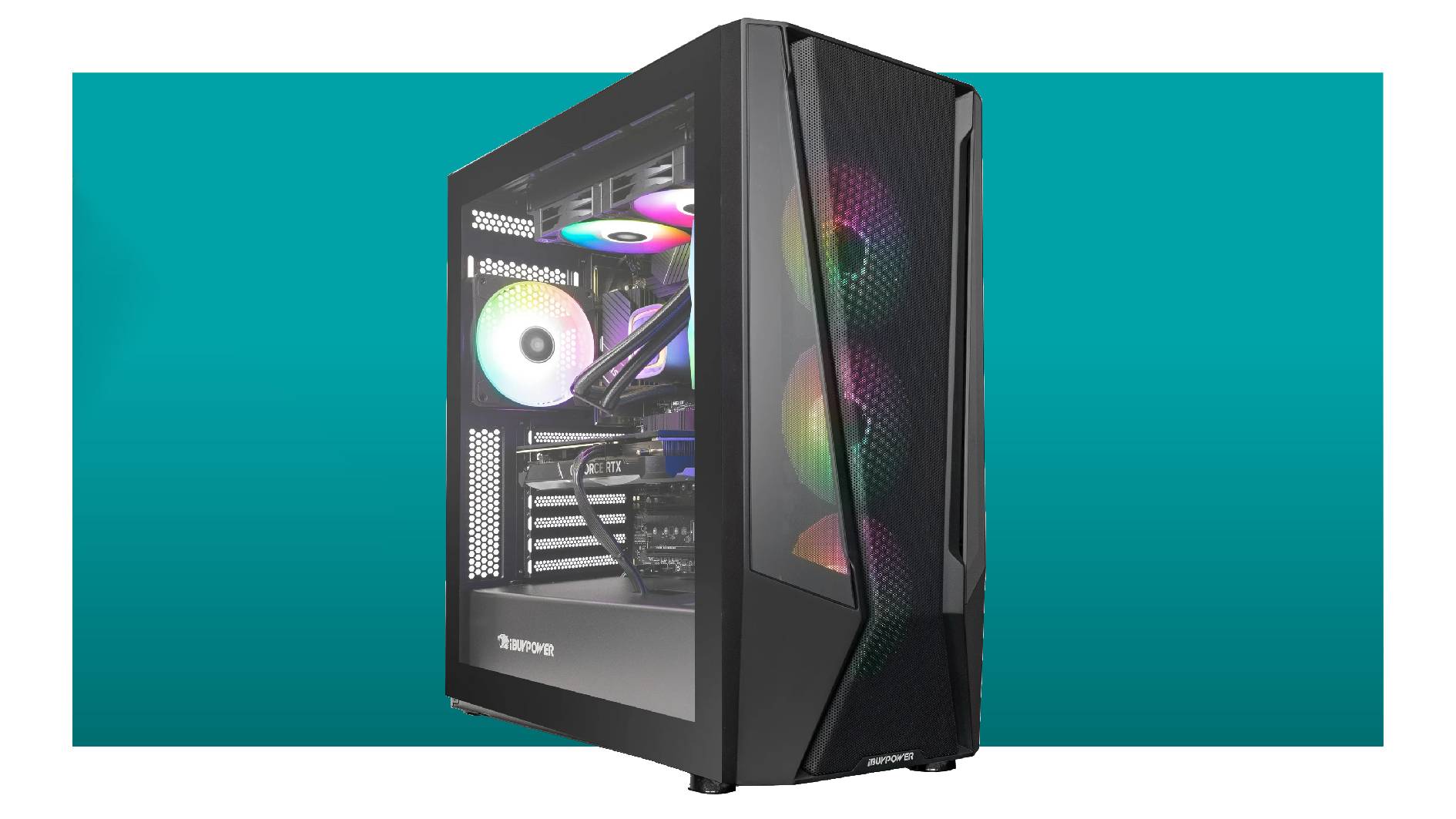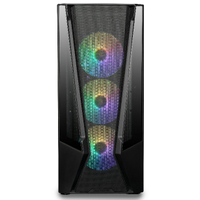
iBuyPower Trace Mesh | Ryzen 7 7700 | RTX 4060 Ti | 16 GB DDR5-5200 | 1 TB SSD | $1,199.99 $999 at Walmart (save $200.99)
Around $1,000 has been the sweet spot for RTX 4060 Ti gaming PCs for a while, now, but that usually means a sacrifice or two on the spec front. What's especially striking about this iBuyPower build is you're barely sacrificing anything—perhaps just an extra 16 GB of RAM which can be upgraded easily. 1 TB of storage is manageable, and the 8-core Ryzen 7 7700 is particularly nice for this price point, despite being of a previous CPU generation.
Yes, the RTX 50-series (and hopefully the AMD RX 9070 and 9070 XT) graphics cards are almost here, and probably some new pre-built gaming PCs, too. But I reckon this iBuyPower build for $999 at Walmart is still worth it.
First off, we have to remember that the upcoming RTX 50-series cards are high-end ones, starting with the RTX 5070. There won't be an RTX 5060 or RTX 5060 Ti gaming PC on the market for a while, we reckon.
Secondly, even when there are eventually RTX 5060 and 5060 Ti builds on the market, these will likely be more expensive than this $999 deal. In other words, if you're looking for an entry-level gaming PC for around $1,000, something like this iBuyPower Trace Mesh is probably as good as you're going to get for quite a while.
And "as good as you're going to get" isn't bad, either. It can be tempting when a new generation arrives to write off the performance of older-generation hardware. But it's not as if all that hardware suddenly started performing worse. The RTX 4060 Ti is still a cracking graphics card for 1080p and even 1440p gaming, especially considering it'll soon benefit from the new DLSS transformer model that the RTX 50-series generation is bringing in.
For this $1,000 (ish) price point, the Trace Mesh here is more than reasonable in other areas, too. More often than not you're sacrificing upgradability when you opt for something in the budget range, but not so here. You're getting DDR5 RAM and a socket AM5 AMD CPU. Both of these should stand you in good stead for upgrades.
Not that you'll be in dire need of an upgrade on the CPU front, mind. The Ryzen 7 7700 is a powerful and yet very power-efficient 8-core CPU. It's previous-gen now, sure, but it still offers great gaming performance and some decent productivity chops, too.
You might want to add to that 1 TB of storage space, of course, but that's only if you like to have lots of games installed at once. You could upgrade the RAM, too, to allow for easier multitasking. 16 GB is fine for gaming, but only if you're strict with background resources. 32 GB is much better for peace of mind.
Luckily, both RAM and storage can be added and upgraded for pretty cheap. And neither are necessary for gaming performance right off the bat here, either. Out of the gate, this gaming PC should perform very well at 1080p and 1440p, even at high refresh rates (of course with frame generation enabled for the latter resolution).
Plus, it's cheap enough that upgrading the GPU shouldn't feel like a massive waste, either. Perhaps when those RTX 50 Supers we'll all be waiting for hit the market—assuming they do so, of course. So yeah, I reckon this build's still a great proposition right now for someone looking to enter into the PC gaming space.
The biggest gaming news, reviews and hardware deals
Keep up to date with the most important stories and the best deals, as picked by the PC Gamer team.

Jacob got his hands on a gaming PC for the first time when he was about 12 years old. He swiftly realised the local PC repair store had ripped him off with his build and vowed never to let another soul build his rig again. With this vow, Jacob the hardware junkie was born. Since then, Jacob's led a double-life as part-hardware geek, part-philosophy nerd, first working as a Hardware Writer for PCGamesN in 2020, then working towards a PhD in Philosophy for a few years (result pending a patiently awaited viva exam) while freelancing on the side for sites such as TechRadar, Pocket-lint, and yours truly, PC Gamer. Eventually, he gave up the ruthless mercenary life to join the world's #1 PC Gaming site full-time. It's definitely not an ego thing, he assures us.


